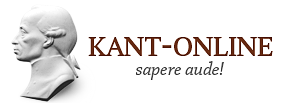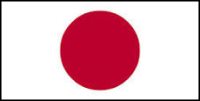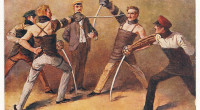Workshop Ideas
“Ideas in Kant’s Transcendental Philosophy”
Online Workshop for Early Career Researchers
December 17–18, 2021
Immanuel Kant Baltic Federal University (IKBFU), Kaliningrad
Organized by the “Kantian Rationality Lab”
Prof. Dr. Vadim Chaly (IKBFU, Kaliningrad)
Dr. Michael Lewin (IKBFU, Kaliningrad)
Dr. Rudolf Meer (University of Graz)
PROGRAM (All time CET)
December 17, 2021
Section 1
13.00-14.00 Keynote presentation: Marcus Willaschek: Content and function of Kantian ideas
14.00-15.00 Stephen Howard (Leuven) The twofold use of the cosmological ideas
15.00-16.00 Daniel Pepe (Chicago) Kant’s theory of history: the idea of universal history in the critical philosophy
Section 2
16.30-17.30 Keynote presentation: Thomas Sturm: Beyond God, world, and soul: Kantian ideas in the special sciences
17.30-18.30 Mathis Koschel (Chicago): The idea of mechanism
December 18, 2021
13.00-14.00 Görg Erdmann (Bochum) On Kant’s conception of space as a mere idea – The twofold nature of space in the works of Newton and Kant
Section 3
14.00-15.00 William Marsolek (Ohio) The Unity of arithmetic in Kant’s ‘Architectonic’
15.00-16.00 Luciana Martínez (IKBFU) Some remarks on Kantian doctrine of aesthetic ideas
16.00-17.00 Keynote presentation: Karin de Boer:
What does it mean to determine ideas of reason in thought? The case of Kant’s transcendental theology
At the end of the 18th century, the concept of idea underwent a fundamental change in meaning, largely due to its use in Kant’s transcendental philosophy. After ‘idea’ had become a synonym for any content of consciousness (representation) in early modern philosophy, Kant redefined and restricted its meaning in an independent way. In the Transcendental Dialectic of the Critique of Pure Reason, ideas are discussed in two ways. First, Kant refutes an illegitimate “transcendental” use of ideas and, second, introduces a legitimate, “immanent”, and more specifically “regulative” use by means of which “the systematic of cognition, i.e., its interconnection based on one principle” (A 645/B 673), is developed. Moreover, in the Teleological Judgment of the Critique of the Power of Judgment, Kant takes up again the concept of a “natural purpose” as an “idea of a whole” (KU AA V, 373), which serves as a regulative-heuristic concept. From the regulative use of ideas Kant distinguishes the practical use, which, in contrast, is objectively valid insofar as with them reason really brings forth what its concept contains (A 328/B 384–5). Accordingly, if what was originally conceived is realized through practical action, the practical idea gains objective validity by virtue of the realization of an action. These and other different concepts of idea (such as postulates, aesthetic, political, religious, and architectonic ideas) are spread throughout Kant’s works, including smaller writings, such as Idea for a Universal History with a Cosmopolitan Purpose (1784), What Does it Mean to Orient Oneself in Thinking? (1786), The Conflict of the Faculties (1798) etc.
Aims
The online workshop aims at providing a forum for intense discussion of the different roles and the value of ideas in Kant’s critical period. It will consist of three sections, each led by a keynote speaker.
1) Ideas in Kant’s transcendental and practical philosophy.
Keynote speaker: Prof. Dr. Marcus Willaschek (Goethe University Frankfurt).
2) Ideas in Kant’s philosophy of science.
Keynote speaker: Prof. Dr. Thomas Sturm (Autonomous University of Barcelona).
3) Ideas in Kant’s theoretical philosophy.
Keynote speaker: Prof. Dr. Karin de Boer (Catholic University of Leuven).
We have invited junior researchers (pre-docs and postdoctoral researchers who are at the early stages of their academic careers) to present their work-in-progress relating to the subject outlined above -> Call for abstracts.
Attend -> us02web.zoom.us/j/85906871064?pwd=NG1MUk40cEVoNTR1VmRwVnpzRUkyQT09




